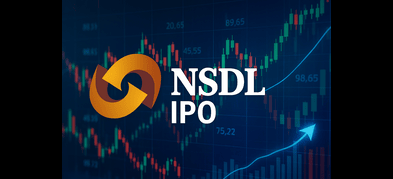What are Oracle-related stocks and how to invest
“Oracle-related stocks” refer to companies that are closely associated with Oracle and have growth potential driven by Oracle’s business operations. These companies are typically involved in Oracle software licensing, cloud services, AI infrastructure, or the Oracle partner ecosystem.
As Oracle holds a significant position in the global database and enterprise cloud markets, investors focus on Oracle-related stocks for their potential to share in the company’s technological and subscription revenue growth.

By analyzing Oracle’s recent revenue structure and growth strategies, we can identify which companies in the supply chain truly benefit from being Oracle-related stocks. The following sections provide a professional explanation, case comparisons, and data-backed insights to explore how Oracle-related stocks influence the market, how they are well-suited for cross-market deployment on the UM platform, and address common investor questions.
Core Types and Characteristics of Oracle-related Stocks
Oracle-related stocks fall into several main categories: Oracle itself, its cloud data center suppliers, Oracle partners, and providers of complementary AI cloud services. Companies that benefit from Oracle’s OCI business often share common traits: reliance on Oracle’s subscription revenue and participation in the growth of its cloud services.
Compared to companies that only sell software, these partners often have the ability to deliver continuous services. This stability and growth potential make Oracle-related stocks more resilient and better positioned for upside during economic fluctuations.
Oracle AI Cloud Service Stock Examples
Here are two representative examples of Oracle-related stocks in the AI cloud services space:
One company specializes in OCI infrastructure operations and security services, with its revenue tightly linked to Oracle. Another company deeply integrates Oracle’s AI tools to deliver vertical industry solutions.
The first company outperformed the broader market by approximately 8% in the short term following Oracle’s earnings report. The second company secured multiple government contracts through the Oracle Partner Network, leading to a 20% revenue increase. These real-world cases highlight the potential and rationale behind “recommended Oracle-related stocks.”

Investment Outlook for Oracle-related Stocks in 2025
Looking ahead to 2025, as enterprise digital transformation accelerates, demand for OCI and Oracle AI licenses continues to grow. According to IDC and Gartner reports, enterprise cloud spending is increasing by over 15% annually, while demand for AI applications is growing by more than 30% per year.
In this macro environment, investing in Oracle-related stocks is not just about individual companies, but about identifying real beneficiaries across Oracle’s entire ecosystem. If you have already opened a demo account with UM, you can monitor these indicators and market trends in real time to test whether your investment logic and strategy align with actual movements.
Opportunities Among Taiwan Stocks Collaborating with Oracle
In Taiwan’s market, a few companies are considered Oracle-related stocks due to deep collaboration with Oracle in cloud services or system integration. For example, one publicly listed firm acts as an Oracle database license reseller and provides localized deployment services.
Its revenue is driven by Oracle subscription upgrades. Annual reports indicate that Oracle-related projects account for 25% of total revenue, with a gross margin exceeding 40%—notably higher than other local service providers.
For investors willing to engage in cross-border trading through the UM platform, these Taiwan-based Oracle-related stocks present strong portfolio value. A trading account with UM further enables access to global markets.
Oracle Cloud Infrastructure Beneficiaries: Stock Analysis
Companies benefiting from OCI range from hardware suppliers to cybersecurity service providers. For example, one SSD hardware manufacturer received OCI partnership certification and became a primary supplier in select regions.
Meanwhile, data security and backup service providers have joined the Oracle partner ecosystem due to OCI expansion, with annual contract volumes growing by as much as 35%. These Oracle-related stocks leverage Oracle partnerships to gain market access and high-margin channels, forming a virtuous growth cycle.
Oracle Cloud Data Center Suppliers: A Comparative Overview
The table below summarizes three key dimensions to help investors assess:
| Company Role | Form of Oracle Collaboration | Growth Drivers |
| Hardware Supplier | OCI data center hardware supply and certification | Data center expansion + hardware sales |
| System Integrator | Local deployment and cloud integration solutions | Subscription income + contract renewals |
| Security/Backup Vendor | Cloud security credential integration and backup services | Recurring service revenue growth |
This type of analysis helps investors identify which sectors within Oracle-related stocks hold the potential for outsized future returns, and enables efficient screening of targets via the UM platform.

Key Traits of Companies Benefiting from Oracle OCI Business
OCI is positioned as the core of Oracle’s cloud platform, spanning computing, storage, security, and AI services. Oracle-related stocks that benefit from OCI typically exhibit the following three characteristics:
1)The company’s operations are clearly tied to Oracle;
2)Its revenue model is primarily based on subscriptions and contracts;
3)It consistently participates in Oracle’s partner programs and holds relevant certifications.
These indicators help investors identify the core companies in Oracle-related stock investment analysis, allowing them to optimize portfolios and manage risk more effectively.
UM Advantages and Investment Efficiency
Utilizing Ultima Markets to invest in Oracle-related stocks offers several clear advantages that enhance trading efficiency and risk control:
- Multi-asset access: Supports equities, forex, and commodities across multiple markets, allowing investors to approach Oracle ecosystem-related companies from various angles.
- Real-time data and technical analysis tools: The platform integrates charts, candlestick indicators, and trade signals, enabling short- and mid-term trend analysis of Oracle-related stocks.
- Seamless switching between demo and trading accounts: Test strategies and backtest market reactions using a demo account, then switch to a trading account for execution, reducing trial-and-error costs.
- Transparent fees and high execution efficiency: Clearly disclosed trading costs, effective slippage control, and stable execution speed help ensure order quality amid price fluctuations.
- Localized language support: The platform offers a Chinese interface and customer service, reducing communication barriers and improving user experience and confidence.
- Flexible risk management tools: Customize leverage levels, stop-loss and take-profit settings according to personal strategy—ideal for mid- to long-term investors aiming to manage volatility.
With these advantages, the UM platform enables investors to systematically capture market trends and trading opportunities in Oracle-related stocks, while avoiding limitations related to market liquidity or fund conversion.

Risks to Know Before Investing in Oracle-related Stocks
All investments carry risks. The primary risks associated with Oracle-related stocks include changes in Oracle’s internal competitive policies, accelerated shifts in market technology, and alterations in partnership structures.
When allocating Oracle-related stocks, it is advisable to use the UM platform to set appropriate leverage and stop-loss parameters. At the same time, investors should regularly monitor Oracle’s earnings reports along with IDC and other market research to avoid losses caused by rapid market shifts.
FAQ
Q: Under what circumstances are Oracle-related stocks easily affected by Oracle’s performance?
A: Typically, when Oracle launches new cloud versions or AI products, the contract value and renewal rates of its partners tend to rise. These periods are when Oracle-related stocks often experience significant price volatility.
Q: Can I invest in a single Oracle-related stock?
A: It is recommended to use the UM platform to diversify across multiple targets, including Oracle itself, hardware, security, and system integration providers, to avoid the risks of holding a single company.
Q: How can I assess whether an Oracle-related stock has long-term value?
A: You can evaluate whether the company actively participates in Oracle’s partner programs, maintains regularly updated cloud subscription revenue, and holds a strategic position within Oracle’s ecosystem.
Conclusion: Capturing Opportunities in Oracle-related Stocks with UM
As analyzed in this article, Oracle-related stocks—whether in hardware supply, security services, or system integration—possess growth potential through close alignment with the Oracle ecosystem. If you already have a demo account with UM and are ready to transition into live trading, now is a great time to evaluate and position yourself in this promising tech segment.
By leveraging UM’s multi-market access and trading tools, you can better seize Oracle-related stock opportunities while continuously tracking the enterprise cloud wave driven by Oracle—enhancing both portfolio performance and risk management.
Disclaimer: This content is provided for informational purposes only and does not constitute, and should not be construed as, financial, investment, or other professional advice. No statement or opinion contained here in should be considered a recommendation by Ultima Markets or the author regarding any specific investment product, strategy, or transaction. Readers are advised not to rely solely on this material when making investment decisions and should seek independent advice where appropriate.
























